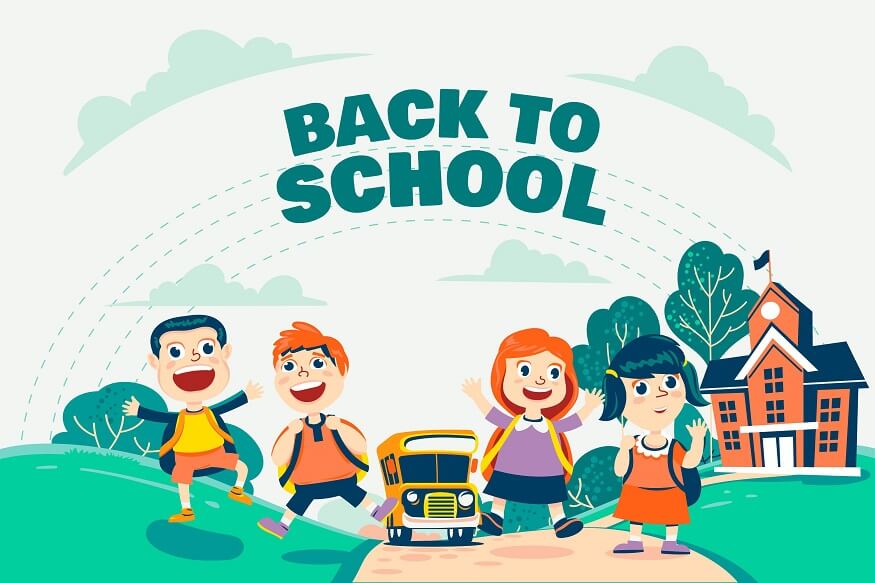The first day of school can be an exciting but also an anxious experience for both parents and children. It marks the beginning of a new episode in your child’s education, and proper preparation can help them feel more confident and excited about the new academic year. This article will explore ten tips that we feel will help you prepare for your child’s first day in class as a student. From visiting the school beforehand to getting involved in their education, these tips can help ensure that your child has a positive and successful start to the school year.
A few top-picked handy Tips
Here are some tips that can help your child on their first day in class as a student.
- Visit the school beforehand: Take your child on a tour of the school before the first day of classes, so they can familiarize themselves with the surroundings and feel more comfortable. Visiting the school in advance can help your child get familiarised with the school environment and feel more comfortable on their first day. You can plan a visit with the school’s office, or attend any orientation events that the school may offer before the start of the academic year.
Also Read: 9 Tips for How to Choose the Best School for Your Child
- Talk to your child about school: Start talking to your child about school a few weeks before the first day. Talking to your child about the school can help them mentally and emotionally prepare for their first day. You can ask your child about their expectations, hopes, and concerns regarding school.
Here are some topics you can discuss with your child –
- School schedule: Explain to your child what their typical school day will look like, including the times they will arrive at school and when they will be dismissed.
- Classroom environment: Discuss what their classroom will look like and who their teacher will be. Give them an idea about the first day of classes.
- Safety and rules: Discuss school rules and expectations, such as behaviour in the classroom, on the playground, and during lunchtime.
- Socialization: Discuss the importance of making friends and getting along with classmates so that the student’s first day at school is a memorable one.
- Establish a routine: Start establishing a routine a few weeks before school starts. This can include setting a regular bedtime, waking up time, and meal schedule. This will help your child adjust more easily to the routine of school.
Here are some tips for establishing a routine –
- Bedtime: Set a regular bedtime for your child, ideally at least 8-10 hours before they need to wake up for school.
- Wake-up time: Establish a consistent wake-up time for your child, and gradually shift their bedtime and wake-up time earlier as the start of school approaches.
- Meal schedule: Plan regular meal times for your child, including breakfast, lunch, and dinner. This will help them maintain consistent energy levels throughout the day and avoid feeling hungry or irritable.
- Screen time: Limit your child’s screen time, particularly before bed. Encourage them to engage in relaxing activities, such as reading or quiet play, before bedtime.
- Label your child’s belongings: Labelling your child’s belongings, including their backpack, lunchbox, and jacket, will help ensure they don’t get lost. Labelling your child’s belongings can help ensure that their things do not get lost or mixed up with those of other kids in their class.
Here are some tips for labelling your child’s belongings-
- Use permanent markers: Use a permanent marker to write your child’s name on items such as backpacks, lunch boxes, and water bottles. This will help ensure that their belongings are easily identifiable.
- Sew labels: You can also sew labels onto your child’s clothing items, such as jackets, sweaters, and uniforms. These labels can be purchased online or at stores that specialize in school supplies.
- Use iron-on labels: Another option is to use iron-on labels, which can be easily applied to clothing items and other fabric-based belongings.
- Use stickers: For younger children, you can use stickers with their names on them to label their belongings, such as pencil cases, notebooks, and folders.
- Pack a healthy lunch and snack: Pack a nutritious lunch and snack for your child to take to school. Packing a healthy lunch and snack for your child can help them stay focused, fulfilled and happy throughout the day.
Here are some tips for packing a healthy lunch and snack –
- Include a variety of foods: Pack a variety of foods from each food group, including whole grains, fruits, vegetables, protein, and dairy.
- Avoid processed foods: Try to avoid packing processed foods, such as chips, candy, and sugary snacks.
- Pack water: Encourage your child to drink water throughout the day by packing a water bottle. This will help keep them hydrated and focused during class.
- Make it fun: Pack your child’s lunch in a fun and creative way, such as using colourful containers or adding a fun note or sticker to their lunchbox.
Also Read: 5 Healthy Breakfast Ideas with Oats
- Practice self-help skills: Teach your child self-help skills such as washing their hands, using the restroom, and dressing themselves. These skills can also help them feel more prepared and capable as they navigate the school day and other daily activities, especially their first day in class as a student.
Here are some self-help skills that you can encourage your child to practice –
- Dressing: Teach your child how to dress themselves, including putting on and taking off their shoes, socks, and clothing.
- Packing their backpack: Teach your child how to pack their backpack independently with the items they would require for school, such as books, pencils, and notebooks.
- Managing their time: Teach your child how to manage their time efficiently by creating a schedule for their daily activities.
- Using the restroom: Teach your child how to use the restroom independently, including washing their hands and flushing the toilet.
- Eating independently: Teach your child how to eat independently, including using utensils, pouring drinks, and cleaning up after themselves.
- Read books about school: Read books about starting school with your child. Reading books about the school can help your child feel more prepared and excited about the first day of classes. When selecting books about school to read with your child, consider books that are age-appropriate and address topics that your child may be interested in or concerned about. You can also look for books that feature characters who share similar backgrounds or experiences as your child.
Here are some ways that reading books about the school can be beneficial –
- Helps familiarize with the school setting: Reading books about the school can help your child become more familiar with the school setting, including classrooms, teachers, and classmates.
- Provides a sense of connection: Reading books about the school can provide your child with a sense of connection to other children who are experiencing similar feelings and situations. This can help them feel less alone and more supported.
- Builds anticipation: Reading books about the school can help build anticipation for the start of the school year. It can help your child feel excited and motivated about the new experiences that await them.
- Encourages a love of reading: Reading books about the school can help your child develop a love of reading and learning. This can benefit them throughout their academic career and beyond.
Conclusion
At EuroSchool, we understand that a student’s first day can be full of anxiousness and as parents, preparing for the first day of school for your child can be an exciting yet challenging time. However, we are confident that with appropriate planning and preparation, you can help your child feel more confident and thrilled about the start of their academic year. Some of the tips we discussed include visiting the school beforehand, talking to your child about school, establishing a routine, labelling your child’s belongings, packing a healthy lunch and snack, having a positive attitude, practising self-help skills, and reading books about school. By implementing these tips, we believe that you can help ensure a smooth and successful start to the school year for your child.










